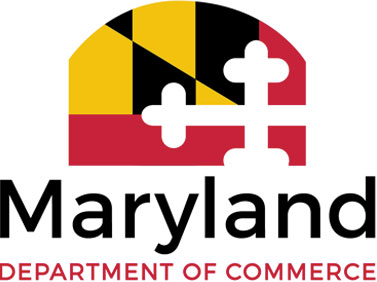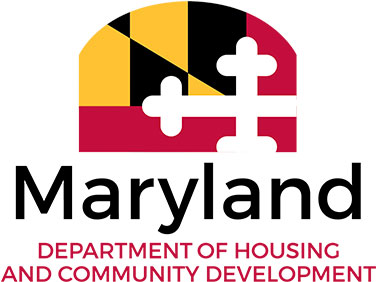GOVERNOR O’MALLEY ANNOUNCES NEW CITY FOCUS AREAS; HARFORD COUNTY ENTERPRISE ZONE EXPANDED
BALTIMORE, MD (July 2, 2014) – Governor Martin O’Malley today announced that the State, through the Maryland Department of Business and Economic Development (DBED), has approved two new Enterprise Zone Focus Areas in eastern Baltimore City and re-designated and expanded Harford County’s Edgewood/Joppa Enterprise Zone. Enterprise Zones enable jurisdictions to provide businesses located within the zones with income tax and property tax credits to help create and retain jobs.
“I am pleased to approve these new Focus Areas in Baltimore City and the expansion of Harford County’s Edgewood/Joppa Enterprise Zone, which will help sustain existing businesses and attract much-needed new businesses to help us achieve our most important goal of creating and retaining jobs,” said Governor O’Malley. “Businesses located in the State’s 30 Enterprise Zones contributed to $2.5 billion in capital investment in Maryland in FY 2014.”
The Baltimore City Enterprise Zone Focus Area represents an area of increased Enterprise Zone benefits for businesses that expand or locate within the boundaries of the Focus area. The real property tax credit remains at the 80 percent level for the full 10 years of the certification and the employment tax credit is increased to $1,500 per new employee and $9,000 per disadvantaged employee. The Focus Area also includes an 80 percent abatement of the Personal Property Tax for the full 10 years of the certification.
“Last year, Baltimore’s Enterprise Zone attracted $324 million in total investment, and supported 1,800 full-time, part-time and construction jobs,” said Baltimore Development Corporation President & CEO Brenda McKenzie. “The addition of these Focus Areas will spur development and private investment in existing and new businesses, return properties to the tax rolls and create more jobs.”
The two new Baltimore City Enterprise Zone Focus Areas are the Holabird and Orangeville industrial areas and will encompass 846 acres. The Areas also include over a dozen underdeveloped and underutilized sites which have been vacant or are occupied by businesses slated for closing. With these new Focus Areas, the City aims to provide incentives for the creation of new jobs targeted to City area residents; attract new investments in underutilized and vacant industrial areas; stimulate major capital investments by existing businesses, new businesses and property owners; and retain and attract industrial/commercial redevelopment.
Harford County’s existing Edgewood/Joppa Zone, which is set to expire later this year, has been re-designated and expanded by 26 acres. The new zone is 3,959 acres which includes commercial development along the Route 40 Corridor as well as several existing industrial parks and shopping centers. Since 2006, an estimated $30 million has been invested in the area, creating about 530 new jobs. The existing EZ has helped development and business expansion in Edgewood and Joppa and the County anticipates that this re-designation and expansion will further promote commercial and industrial reinvestment; attract new offices, R&D and industrial development; leverage the investment of private capital; increase employment opportunities for low-to-moderate income persons and decrease the poverty level, and increase the tax base of Harford County.
“The Edgewood/Joppa Enterprise Zone has benefited the County through redevelopment and revitalization of this area of Harford County. Several large companies have located operations within the enterprise zone and other resident firms have expanded or have plans to expand,” said James Richardson, Director, Harford County Office of Economic Development. “One of the largest investments into the zone was Kohl’s ecommerce center. Kohl’s purchased an existing 650K square foot building and added onto that building to create a 1 million square foot ecommerce center which employs over 900 people. This program has been very successful for Harford County.”
DBED approves the State’s Enterprise Zones, while local governments are responsible for their administration. Businesses operating within an Enterprise Zone may be eligible for a tax credit towards their state income tax filings based upon the number of new jobs created, and a tax credit on their local real property taxes based upon their overall capital investment into a property.
ABOUT DBED
The Maryland Department of Business and Economic Development stimulates private investment and creates jobs by attracting new businesses, encouraging the expansion and retention of existing companies, and providing workforce training and financial assistance to Maryland companies. The Department promotes the State’s many economic advantages and markets local products and services at home and abroad to spur economic development and international investment, trade and tourism. For more information, visitwww.ChooseMaryland.org
MEDIA CONTACT:
Karen Glenn Hood, Director, Media Relations and Public Affairs
Division of Marketing and Communications
Maryland Department of Business & Economic Development
World Trade Center Baltimore | 401 E. Pratt Street, Baltimore, MD 21202
O 410.767.6318 | BB 443-463-8129 | E kglennhood@choosemaryland.org


